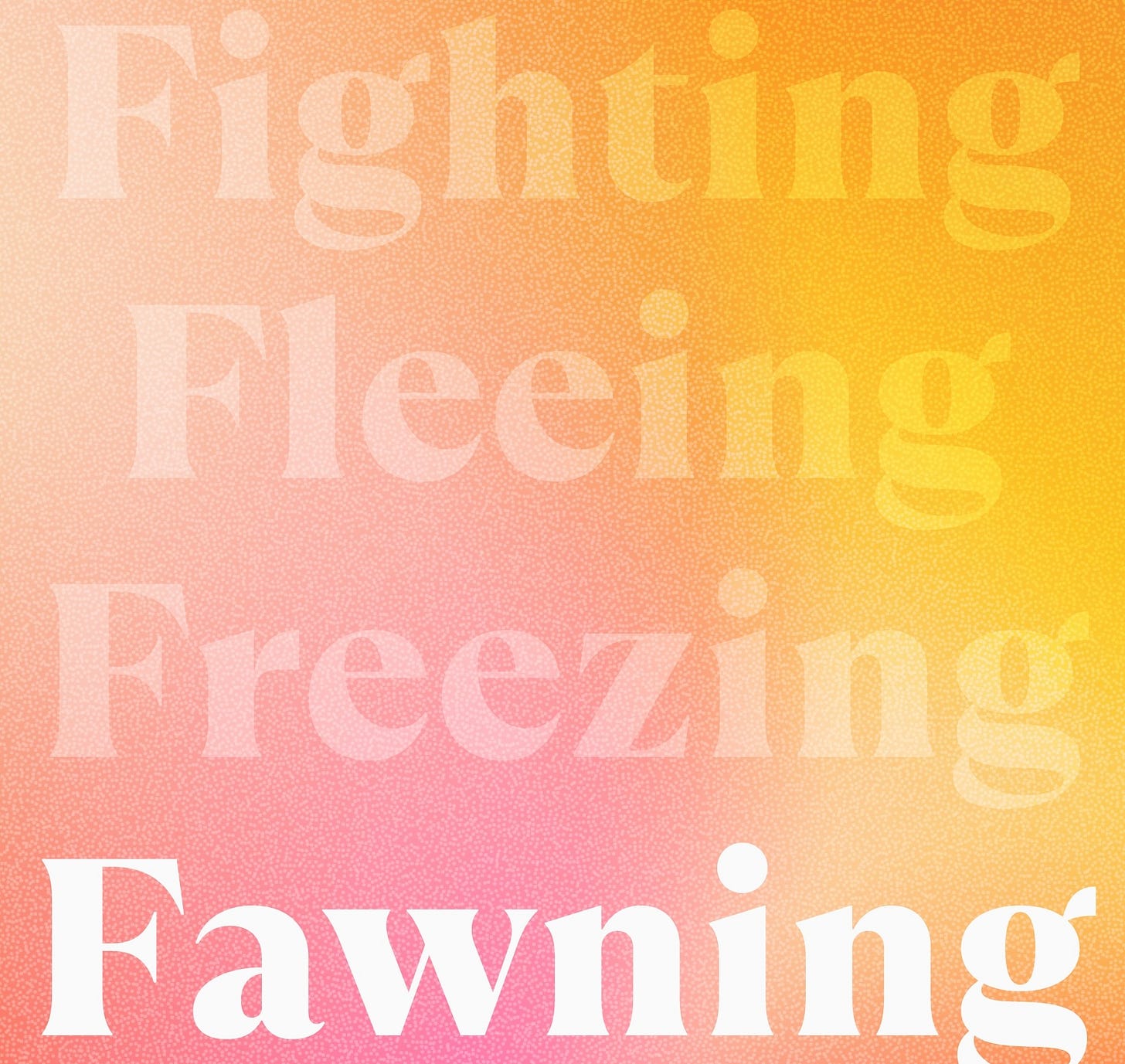The Fourth F
It's called Fawning. And I bet you, like me, have done it
A lot – I mean A LOT – of books pass through my life. More than I care to think about. More than any human being can possibly read. Many of them interest me, far more don’t. Very very few actually speak to me. But when Dr Ingrid Clayton’s Fawning: Why the Need to Please Makes Us Lose Ourselves – and How to Find our Way Back landed in my inbox it practically leapt up and smacked me in the face.
Most of my life – certainly my teenage and early adult years – I found the idea of a fight or flight response (and then a fight, flight or freeze response, as it became in the noughties), let’s just say, confusing. Even as a child, I rarely fought or fled, when faced with conflict of any description, I wasn’t brave enough. I wanted to be liked, to fit in, to please. To get a gold star, a pat on the head. Not to disappoint. Not to see a brow darken with displeasure. Freezing sometimes worked – you know, the whole ‘if I close my eyes and hide under the table then no-one will be able to see me and I’ll be safe’, thing? That. But that wasn’t always an option. Also I worked out pretty early on that that invisibility only worked in cartoons. (Or so I thought!)
Then something happened in my late teens. Something I’ve written about (or at least around), in my memoir/manifesto about rediscovering myself in my late forties, The Shift, and I discovered, subconsciously, that a technique I hadn’t known I’d been nurturing could, in fact, keep me safe. Or at least give me a semblance of safety. It was, of course, a mirage that was easily punched through. And was. More than once. The only way to guarantee my safety would have been to walk away and keep walking, but I didn’t know that, then, and wouldn’t have had it in me anyway by the point I should have been long gone.
It took me another thirty years to discover that survival, such as it is, via this mechanism has a cost. And the cost is ourselves. The sublimation of anything about us that we suspect might cause offence or irritation, that might anger someone else. Even if it’s not you that’s the source of their anger. (I don’t know about you, but that wasn’t a distinction I was able to make, back then.)
That was a long time – and a lot of therapy – ago now. But I still catch myself doing it; fawning. The difference is I recognise it and I can, usually, stop it.
If fawning sounds a bit Uriah Heep to you, we have other names for it, too, words that might sound a bit more familiar. A bit more palatable. They describe the kind of common or garden behaviour that helps the days pass more smoothly if you, like me, are a conflict-avoidant type. People pleasing. Apologising. Blame-shouldering. Fixing. Hyper-vigilance. Second guessing. Sorry sorry sorrying.
Just reading that list back is exhausting. Living it? Ay ay ay. For you – for me – and for the people around you.
Which brings me back to this incredible book. The first, to my knowledge, to tackle fawning in all its guises – as a trauma response, but also as a day-to-day coping mechanism that so many of us unwittingly adopt. What causes it, why and how we adopt it, and how to reclaim ourselves from it. So I was thrilled when Dr Ingrid Clayton agreed to let me run an extract here on The Shift with Sam Baker exclusively for subscribers.
This extract is taken from the beginning of Fawning where she discusses her first conscious experience of fawning and goes on to discuss what fawning actually is and why. Please be aware that this powerful extract contains some unsettling moments of grooming. If you’d prefer to dodge them, but would like more information on fawning, scroll speedily down to the bolded subhead, Connection is Protection.


